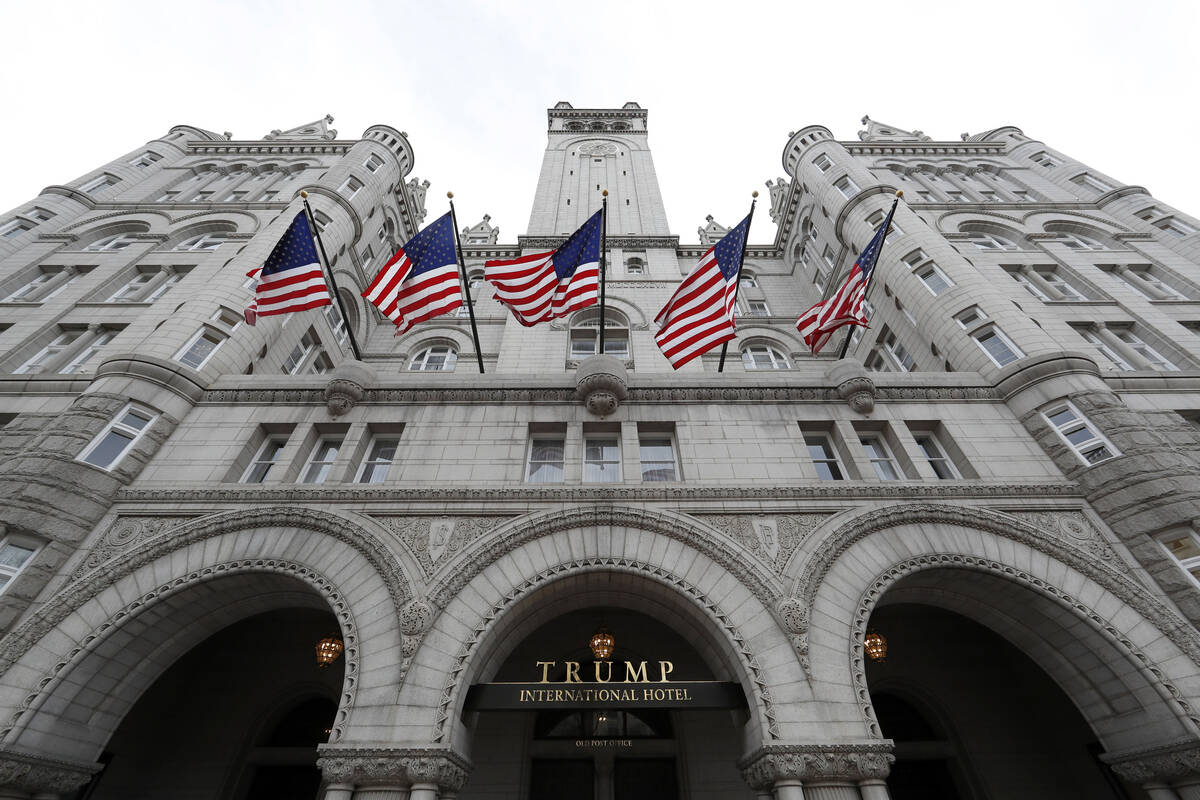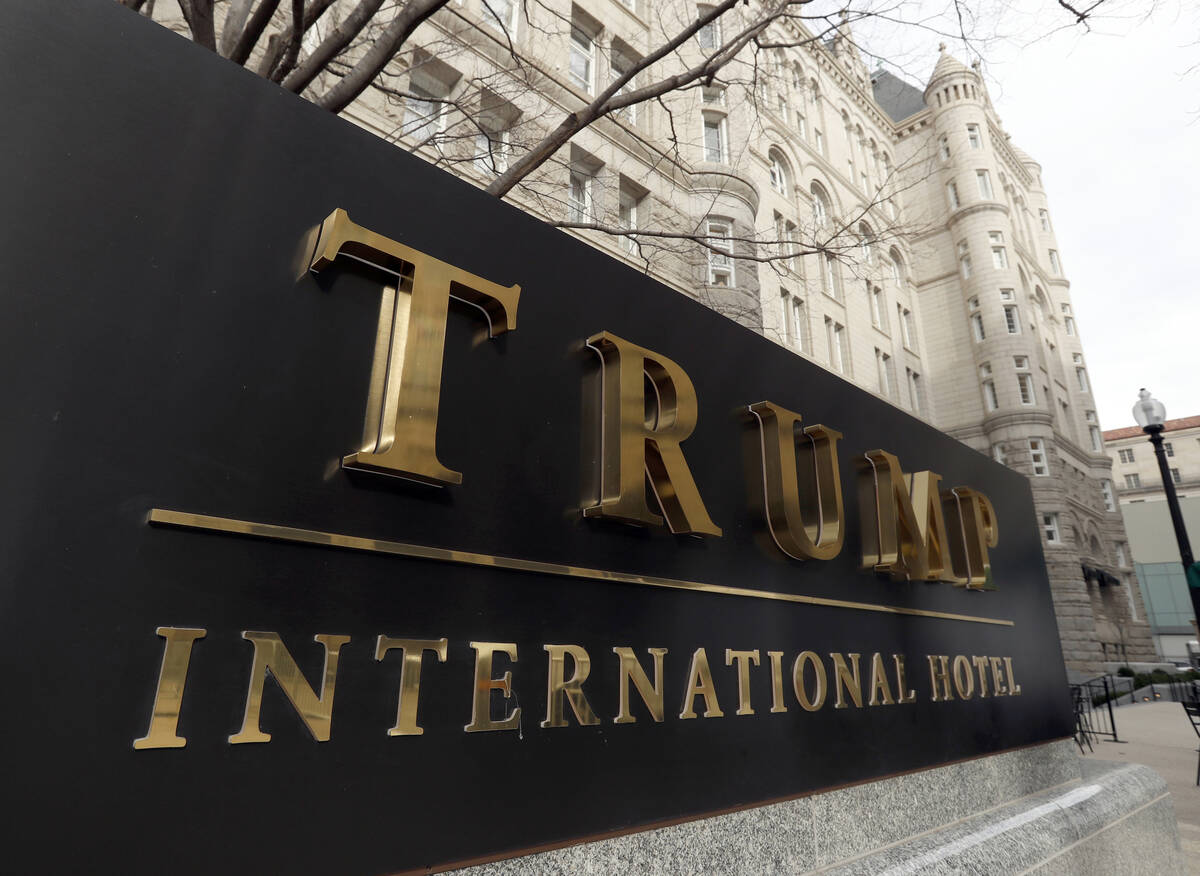Titus: No leasing government property to presidents
WASHINGTON – Former President Donald Trump is selling the lease on his Pennsylvania Avenue hotel that became a political landmark and center of power during his presidency.
Democrats claim it was a symbol of questionable ethics, constitutional and legal violations. They have moved to prevent future presidents from profiting from leases of government property.
Rep. Dina Titus, D-Nev., who led an investigation into the Trump hotel, built in the Old Post Office, has filed a bill so that “no future president can benefit from this kind of agreement ever again.”
“The Trump hotel in Washington, D.C. has always presented a clear conflict of interest,” said Titus, chairwoman of the House transportation and infrastructure subcommittee on public buildings.
Titus is one of several Democratic lawmakers, as well as attorneys general in Maryland and the District of Columbia, who questioned the federal government lease with The Trump Organization. Despite congressional calls to divest from the family business that operated the downtown hotel, Trump refused to do so. He is now expected to profit from the sale of the lease at an estimated $375 million.
Federal court challenges were filed during the past five years over the lease. Trump, through his lawyers in court hearings and legal filings, denied any wrongdoing.
Bill bans presidential leases
The General Services Administration, the government agency which arranged the lease, never took action to revoke or revise the agreement despite numerous congressional, state and federal requests. The legislation that Titus filed would prohibit similar deals in the future by the agency, which entered into the lease in 2013, years before Trump was elected president.
Once Trump took office, he refused to divest from the family business, and touted the central luxury location as a center for business and political activity. The Presidential Inaugural Committee spent $1 million on ballrooms, hotel rooms and other space in 2017. Legal filings in Washington, D.C. claim the committee overpaid for hospitality services.
More questionable was expenditures by foreign dignitaries and their entourages who stayed at the high-priced hotel while they were in the nation’s capital to discuss matters with the Trump administration and federal departments and agencies.
A House Transportation Committee investigation found foreign government patronage resulted in $355,687 in profits from 2017 to 2019, according to a report released last year.
Transportation Chairman Peter DeFazio, D-Calif., and Titus, launched the investigation following oversight hearings.
The inaugural activity was also the basis for a lawsuit filed by D.C. Attorney General Karl Racine. A settlement was announced by Racine on Twitter this month. The Trump Organization and the inaugural committee will pay D.C. $750,000, he said.
The settlement will also allow the $375 million sale of the lease to move forward with a Miami-based investor group partnering with Hilton. Hilton and CGI Merchant Group announced that the hotel property would become part of the Waldorf Astoria brand.
Improving a neglected building
Eric Trump, executive vice president of the Trump Organization, dismissed critics of the sale and family company profits in a statement to NBC News that noted the family transformed a dilapidated government property into an iconic hotel.
The sale terms of the lease were reviewed and approved by General Services Administration in March, according to documents on the administration’s website.
“Today’s sale is the latest in a long line of questionable deals, conflicts of interest, and constitutional violations involving former President Trump and his Washington, D.C. hotel,” said Rep. Carolyn Maloney, chairwoman of the House Oversight Committee.
That committee also investigated terms of the lease agreement.
Titus, as a subcommittee chair, questioned officials over the past five years and urged revocation of the lease. In filing her bill, she said there is a need for “greater accountability and reform of the outleasing program.”
DeFazio and Titus have accused the government of flagrant mismanagement of the Old Post Office, stonewalling congressional investigations and failing to implement recommendations from the General Services Administration’s inspector general, which also questioned the lease agreement with the president’s company.
“When our government leases out assets, there must be strong and clear guardrails in place to avoid conflicts of interest,” DeFazio said.
Contact Gary Martin at gmartin@reviewjournal.com. Follow @garymartindc on Twitter.
























